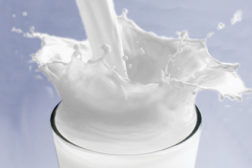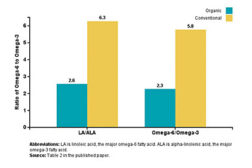Home » health and wellness
Articles Tagged with ''health and wellness''
The weekly rewind
Trends from the trenches: highlights from this week in food journalism
Healthy foods are what consumers say they are, not what your marketers think. Reduced-fat items may still be considered too fatty by some shoppers.
January 17, 2015
Research
University of California studies health-boosting compounds in cow's milk
The researchers are identifying molecules that interact with beneficial bacteria in the infant gut to ease digestion, prevent inflammation and even fight cancer.
December 17, 2014
Deep thinkers
Food industry summit examines the 2015 Dietary Guidelines for Americans
The underwriting sponsor, The Dannon Co., has a mission of to bringing health through food to families everywhere.
November 20, 2014
Fear not
Why I continue to recommend milk
There's simply no reason to change your diet based on a single research study.
November 6, 2014
Better living through dairy
Milk, dairy foods are smack-dab in the middle of the year’s top nutrition trends, says Dairy Council of California
Milk and dairy foods are often shown to be associated with lower risk of both diabetes and heart disease.
July 3, 2014
Dairy dearest
As global demand for dairy products soars, domestic innovation is key
U.S. producers should treat export markets with caution and use the profit boost as fuel for innovation here at home.
June 27, 2014
Good food
Thank Bulgaria for yogurt, a creamy and healthy low-sugar, high-protein food
Yogurt has a storied history dating back 4000 years, when ancient inhabitants of Bulgaria carried fermented sheep's milk in bags around their waists.
April 25, 2014
Stay ahead of the curve. Unlock a dose of cutting-edge insights.
Receive our premium content directly to your inbox.
SIGN-UP TODAYCopyright ©2024. All Rights Reserved BNP Media.
Design, CMS, Hosting & Web Development :: ePublishing











